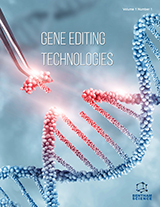Abstract
Unfortunately, we are living in a century where cancer has become an
epidemic that is uncontrollable. Although the plant kingdom has been explored for
cancer therapeutics due to its antimutagenic, antioxidant, antiproliferative, and
alteration of the human immune system potential; these efforts are still underway due
to inadequate knowledge of their biochemical mechanisms and molecular pathways.
Phytochemicals exert anticancer activity due to their agonistic and antagonistic
potentials on different proteins and enzymes involved in the molecular pathways of
cancer. This classical phytotherapy treatment has various pitfalls, such as resistance,
side effects, and a lack of target specificity. Because of the target-specificity effects,
traditional phytotherapy does not distinguish tumour cells from normal cells. A
multitargeted approach, in which a single phytochemical act on different points of the
same signalling cascade, plays an important role in this regard. Polypharmacology,
system biology, and networking pharmacology are the different terminologies to use to
explain in detail the multitargeting approach. Classical phytotherapy is replaced with
this multitargeted approach where different “omics” such as genomics, epigenomics,
transcriptomics, proteomics, metabolomics, and various cytogenic technologies are
involved. In this chapter, the various multitargeted approaches involved in cancer
therapy and the phytochemicals that were prominent in cancer prevention in the 21st
century have been explained. At the end of the chapter, the holistic approach to the
treatment of oncology has also been emphasized.






















